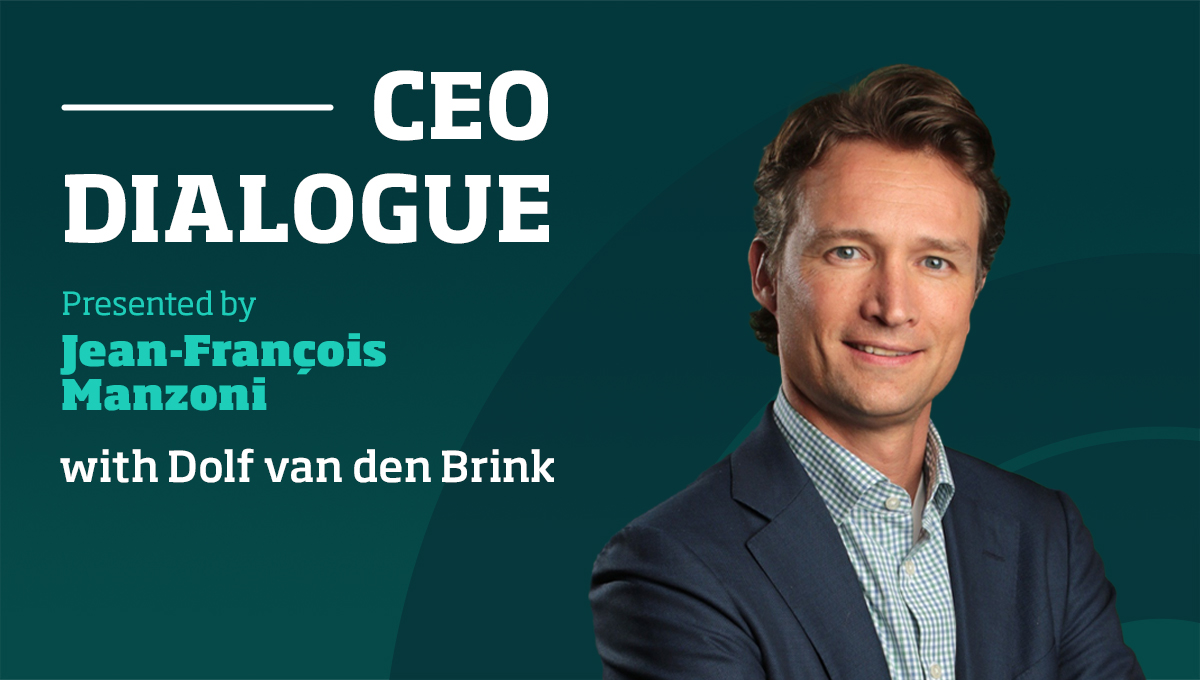
Once COVID-19 is beaten, let’s mobilize our efforts
The most devastating war in terms of casualties was WWII, with some official estimates reporting 85 million dead. (COVID-19 has so far killed almost 180,000 people worldwide with 2.6 million cases.) Yet, out of one of the darkest moments of modern history sprang momentous intellectual and political developments that resulted in the creation of powerful political and economic institutions to safeguard peace and prosperity.
After WWII, governments around the world understood that securing world peace had to be the outcome of a concerted effort of many countries and strong wills. The UN was instituted in 1945 with the stated objective of safeguarding democracy, freedom, and peace. The World Bank as well as the IMF were founded in 1944. On April 7, 1948, the World Health Organization (WHO) was established “to promote health, keep the world safe, and serve the vulnerable.”
On a regional level several, organizations took shape worldwide from the Arab League in 1945, to the Inter-American Treaty of Reciprocal Assistance in 1947. What has become European Union was born in 1957 and the Association of Southeast Asian Nations in 1967. All strove to enhance the cooperation of their member states on issues related to security and safety, as well as economic, political and military aspects affecting their regions.
Seventy years on, we are facing a similar situation. Coronavirus entered our lives and our vocabulary in December 2019 but has quickly become a daily predicament for all of us, and a global health crisis. This pandemic affects everyone and everywhere.
“Like WWII, the current pandemic should push our collaboration efforts, and on three fronts.”
Governments around the globe have likened the challenge that we face to a war. Authorities in Wuhan claimed that they are in a “state of war” as they imposed the lockdown of the city while Donald Trump defined himself “a wartime president” and tweeted “We will win this war”. Emanuel Macron, the French president, generally more sober, said the same. On April 1st, on his speech, Italy’s Prime Minister Giuseppe Conte mentioned that “…the battle is not over”. In the UK, Queen Elizabeth’s crisis speech to the nation made references to WWII. And the UN Secretary-General António Guterres provided the global perspective, drawing the analogy that COVID-19 is the “most challenging crisis” since WWII.
We are not sure that labelling this crisis a war is the perfect analogy. However, we believe that if there is something that wars and today’s crisis have in common, it is that both are tremendously costly in terms of disrupting physical, economic and psychological wellbeing.
WWII, the largest bloodshed in history, shook us into seeing that in order to protect some of our most fundamental values going forward – peace, health and freedom – we needed to coordinate our actions. Similarly, the current pandemic should push our collaboration efforts and on three fronts.
Three musts for post-COVID times: regional coordination
When COVID-19 broke, in Europe there was no concerted effort initially. In the UK, the initial response was one of caution until the strategy took a U-turn. While Italy started implementing draconian measures to limit the diffusion of the virus, neighboring Switzerland seemed initially unperturbed. With hindsight, it was naïve to think that the virus would stop at the border. The fact is that in Europe, the battle against COVID-19 began as a highly country-specific attempt with “unfortunate” actions from different EU members.
The EU’s lack of leadership has been criticized. And yet, as the Executive Vice President of the European Commission Margaret Vestager has reiterated, the EU can coordinate its members but cannot harmonize their health systems. In fact, it has neither the mandate nor the power to do so. It can promote coordination and collaboration but ultimately, the individual governments of the member states draw up the policies.
And so, as the severity of the pandemic has intensified with respect to people infected and number of deaths, the attitudes of member states has changed, bringing forward collaboration on medical supplies, availability of hospital beds and coordination in terms of economic support. Sadly, it has been too little too late.
Three musts for post-COVID times: a global health body
If collaboration among countries is important, the creation of a global health body is even more so. It should be as independent from politics as it can be, and have the mission to create and disseminate intelligence, thereby providing an ample playing field across nations and people. Additionally, the agency should have the objective, capability, and most of all the means, to design and coordinate a global response, and to impose it across member states.
The closest we have to such an ideal is the WHO which, however, does not have the power it needs to act on this mission, unable to trigger a coordinated global response or anything resembling one. In fact, COVID has exposed many more holes in it. There have been criticisms with respect to announcements regarding the severity of the virus and the actions that should have been undertaken.
All this serves to expose our need for an international institution with broader mission and greater reach. Just like the UN was born from the ashes of the League of Nations, a stronger WHO or an entirely fresh organization must soon assume the newly created role of securing world health from novel threats.
Three musts for post-COVID times: coordinated financial resources
Finally, as wars have devastating financial effects, so too will this pandemic. WWII resulted in a 70% loss of manufacturing capacity in Europe while thousands of its cities and towns and those in the then Soviet Union were destroyed. Last week, the IMF’s estimates were devastating: the global economy will decrease by 3% in 2020, the worst economic decline since the Great Depression.
“Financial markets can help to reduce and hedge risk and should be used in the future to coordinate the financial resources around viruses and pandemics.”
The financial markets could help to coordinate financial resources in at least two ways; firstly, through the securitization of this risk, allowing capital to flow to companies researching cures and vaccines against viruses. We may see venture funds being launched with the sole objective of financing research projects and eventually start-ups of companies involved in this field.
As a result, we could see a more efficient allocation of resources in companies that engage, or can engage, in the production of health-related goods and services. Thus, the likes of Brooks Brothers converting factories in different US states into sites for the production of masks, and Dyson, Ford and GM who did so for ventilators will not appear as an unplanned afterthought. Instead, such actions will be the outcome of a planned scenario.
The second way that financial resources will become more coordinated is through the wider use of more standard insurance contracts. Whilst we do already have pandemic insurance, it is not used widely. The All-England Lawn Tennis Club, organizers of Wimbledon, has been using this kind of insurance against the possibility of a pandemic in the last 17 years. As a result, this year it will recover about a third of its lost revenues due to the tennis tournament being cancelled for the first time since WWII. Financial markets can help to reduce and hedge this risk and should be used more in the future, to coordinate the financial resources around viruses and pandemics.
In order to successfully address a global health crisis, we need a global reaction. Our initial reaction to COVID-19 was not coordinated enough, but we can learn from that to outline the actions to be taken when the dust settles.
Research Information & Knowledge Hub for additional information on IMD publications
With stagnant import volumes since 2021, and import prices at levels below those suggested by fundamentals, foreign exporters face an uphill battle to convert access to the Chinese market into revenues. Notably, the volume stagnation predates the ...
SEPTEMBER 2023, SÃO PAULO (BRAZIL). Gustavo Buffara was painstakingly putting the finishing touches on the IG4 Private Equity Fund III presentation. Co-founded by Gustavo in 2016, IG4 Capital had grown to become a leading force in private equity i...
It has become conventional wisdom to view Europe as an economic powerhouse past its prime, overshadowed by the steady advance of the US and meteoric rise of China. Critics cite Europe’s shrinking share of global GDP, excessive regulation, and slug...
in I by IMD
Research Information & Knowledge Hub for additional information on IMD publications
Research Information & Knowledge Hub for additional information on IMD publications
in I by IMD
Research Information & Knowledge Hub for additional information on IMD publications
Research Information & Knowledge Hub for additional information on IMD publications
in I by IMD 14 December 2024
Research Information & Knowledge Hub for additional information on IMD publications
Research Information & Knowledge Hub for additional information on IMD publications
Research Information & Knowledge Hub for additional information on IMD publications
in I by IMD 29 November 2024
Research Information & Knowledge Hub for additional information on IMD publications
Research Information & Knowledge Hub for additional information on IMD publications
Case reference: IMD-7-2514 ©2024
Research Information & Knowledge Hub for additional information on IMD publications





